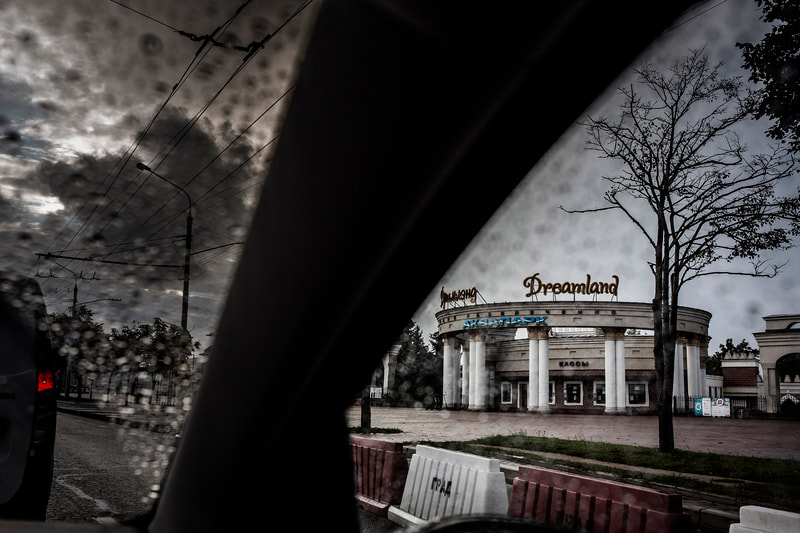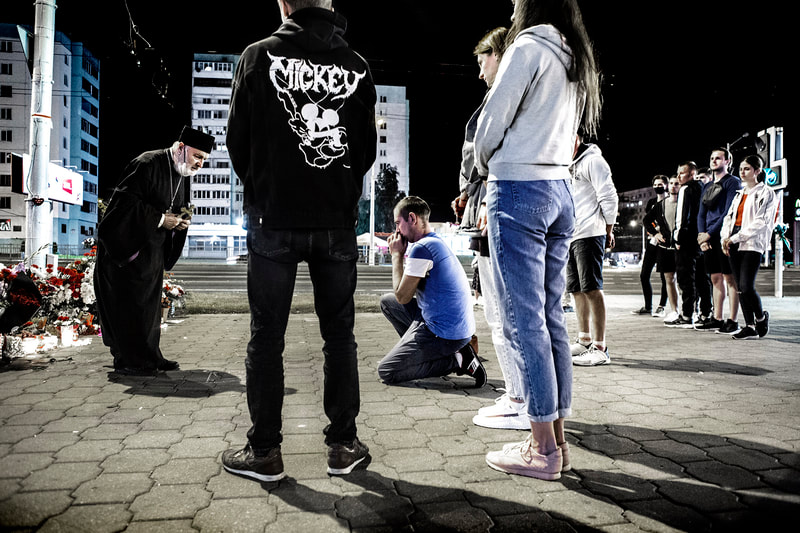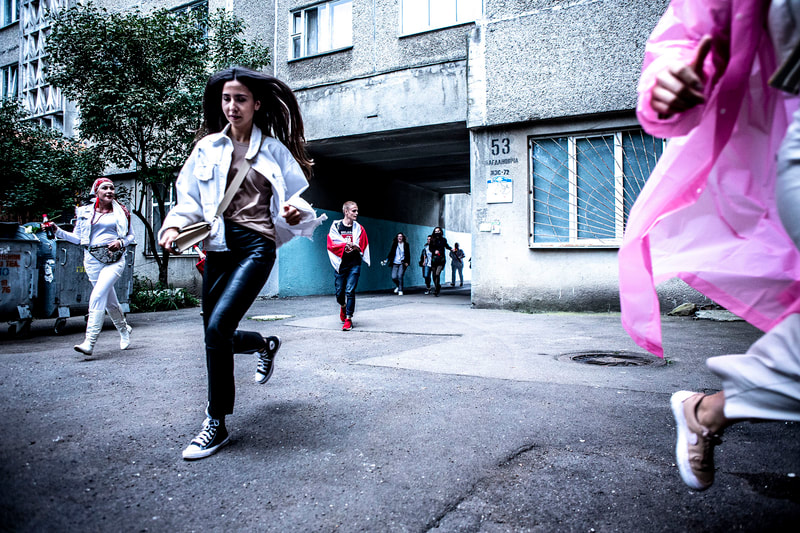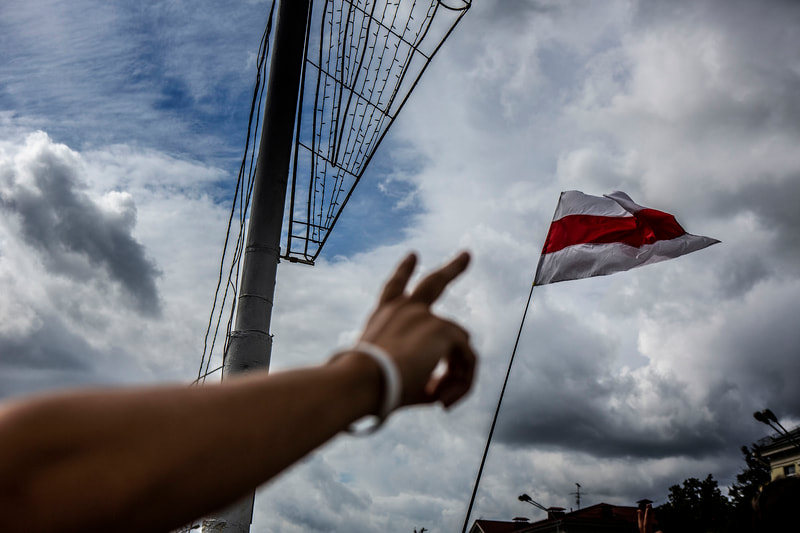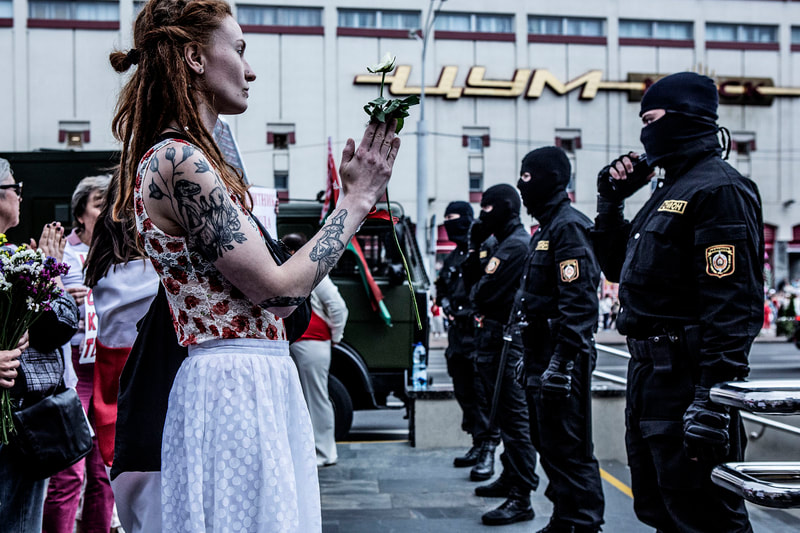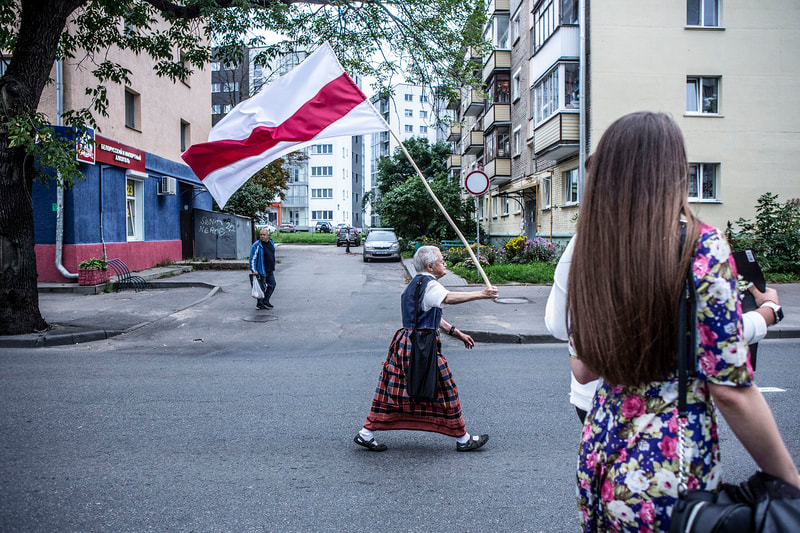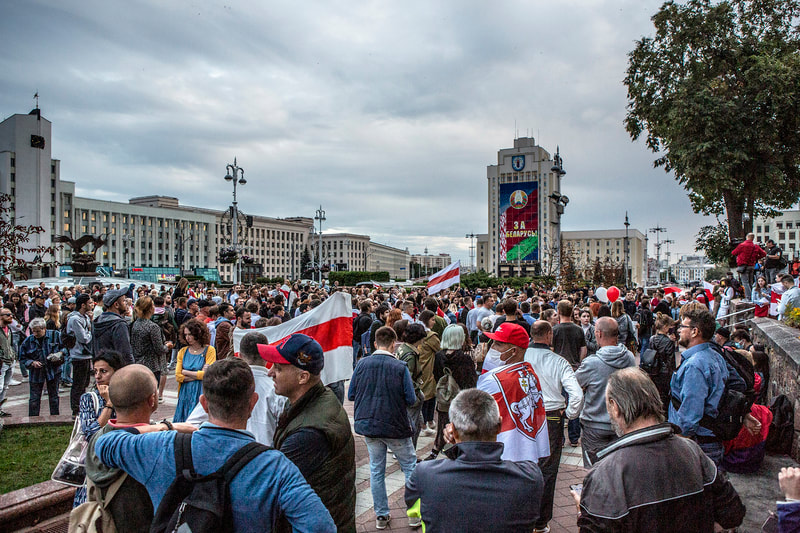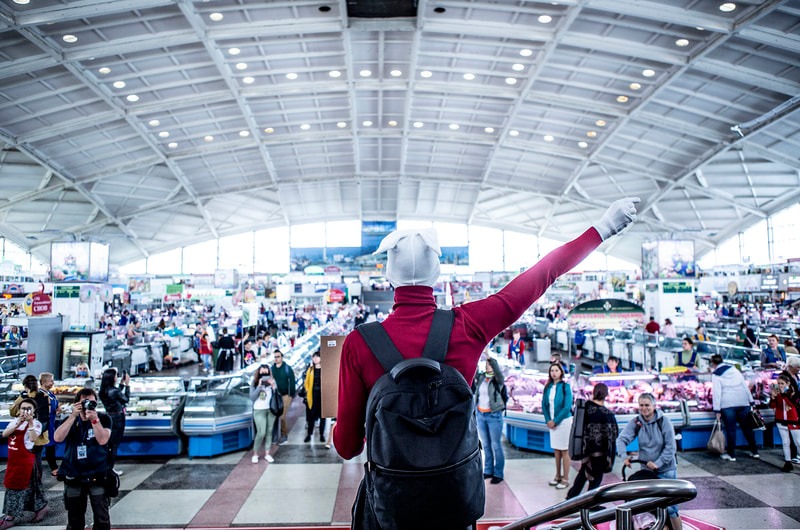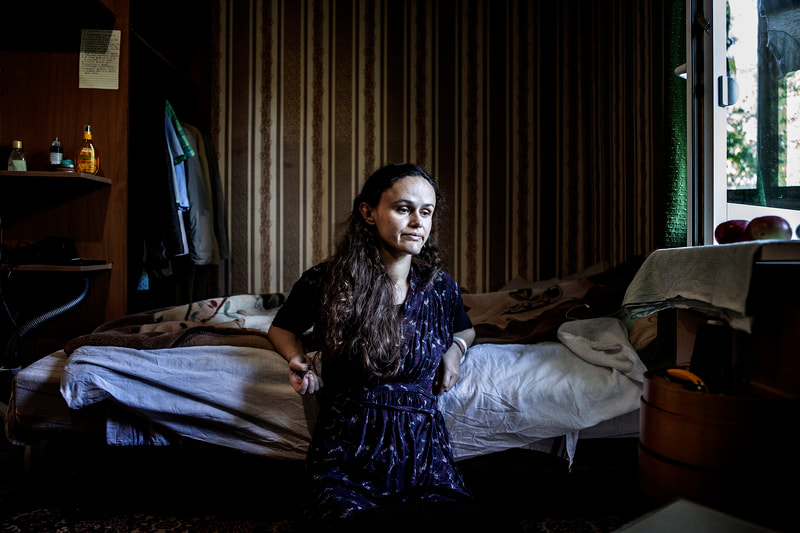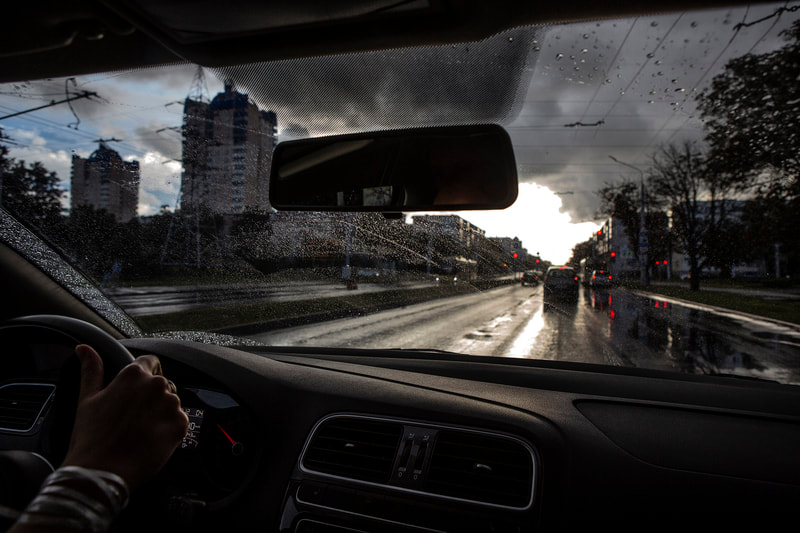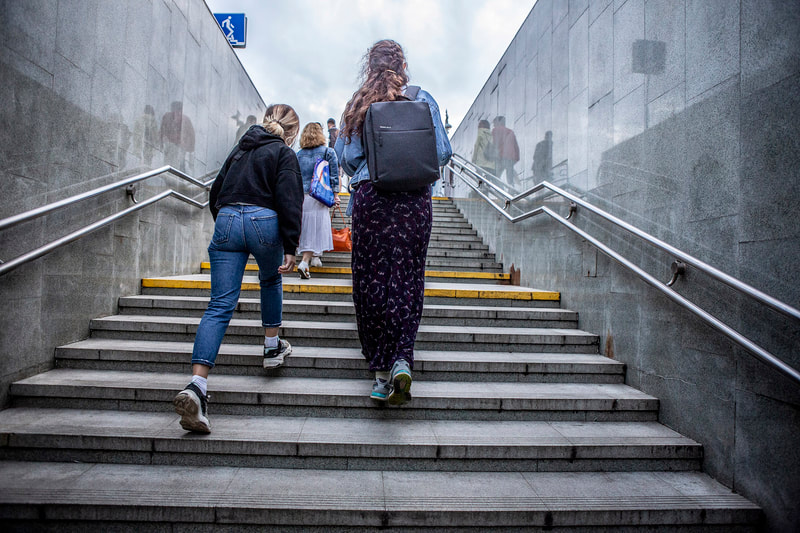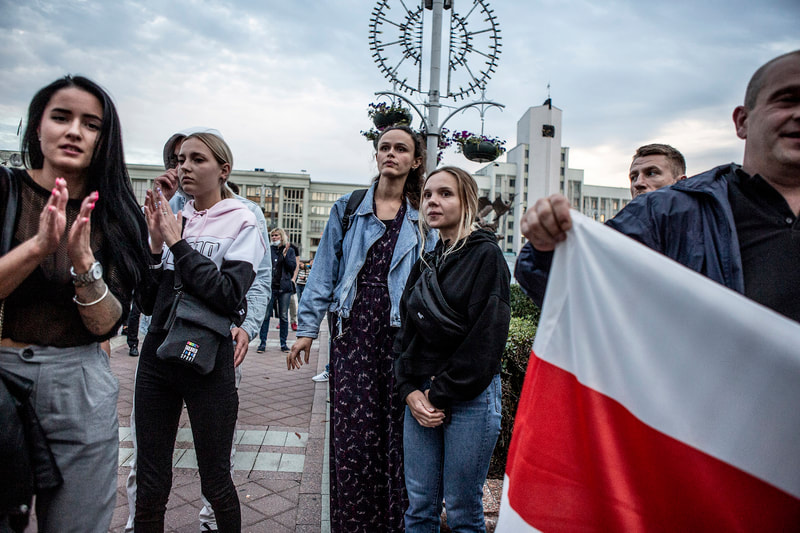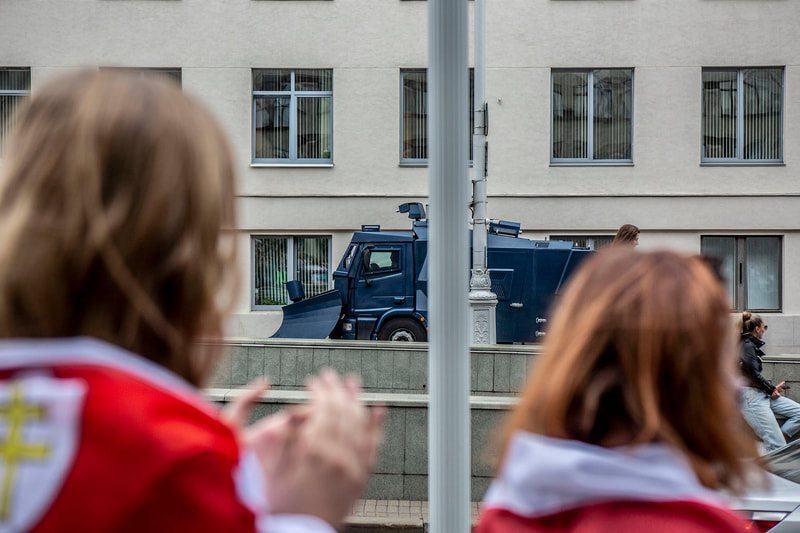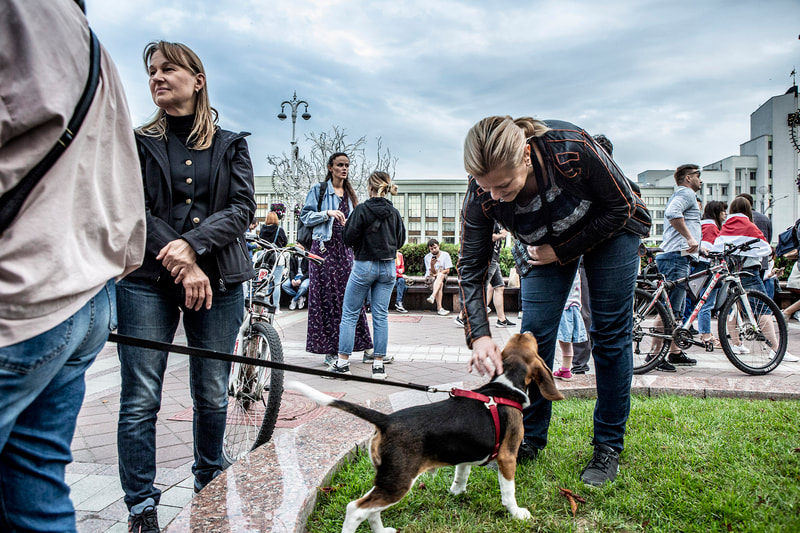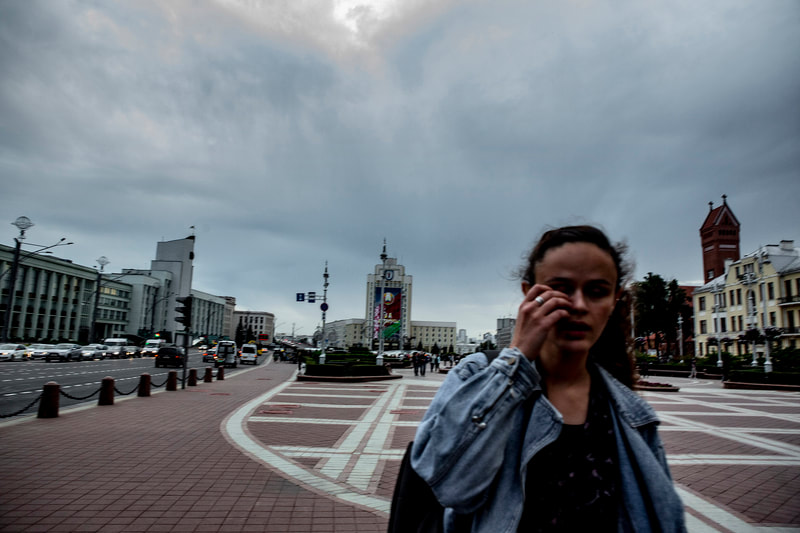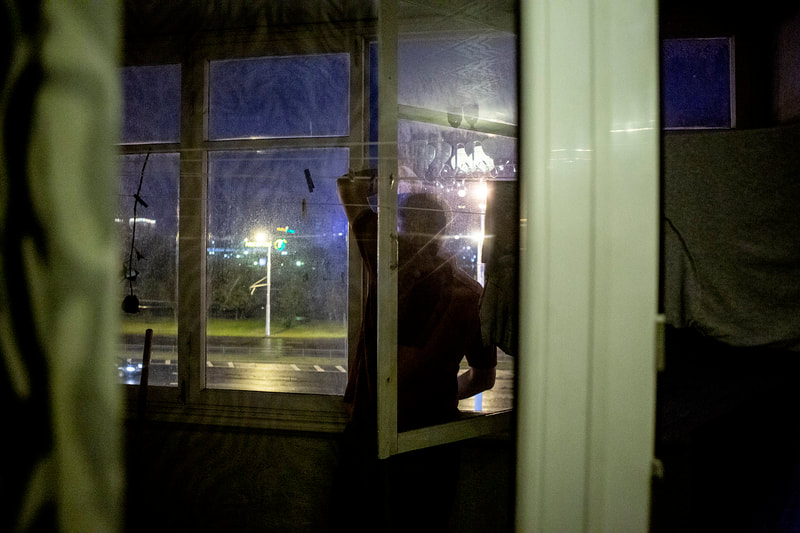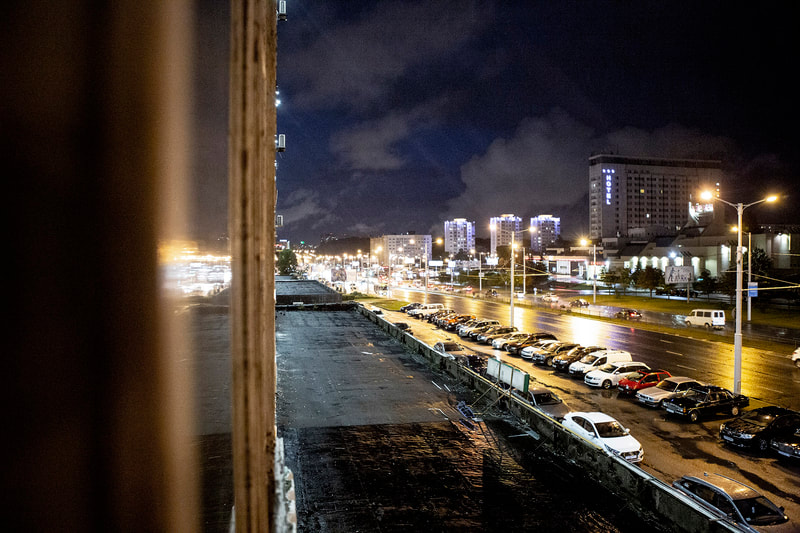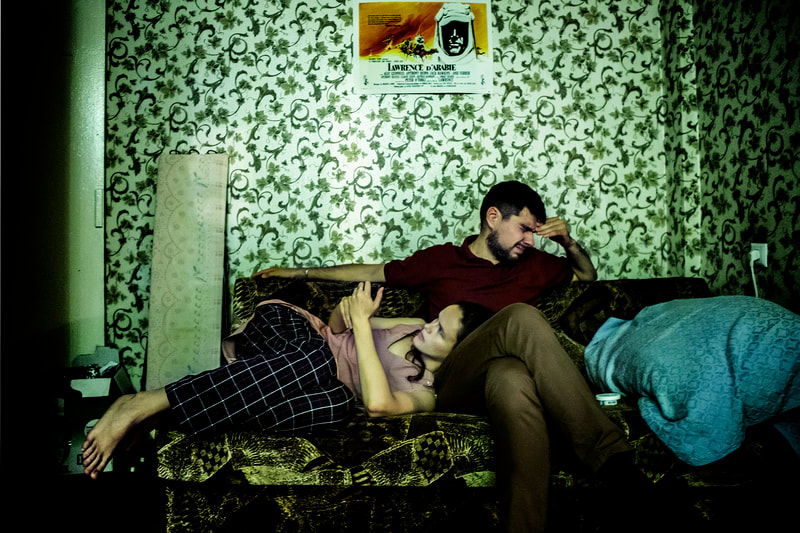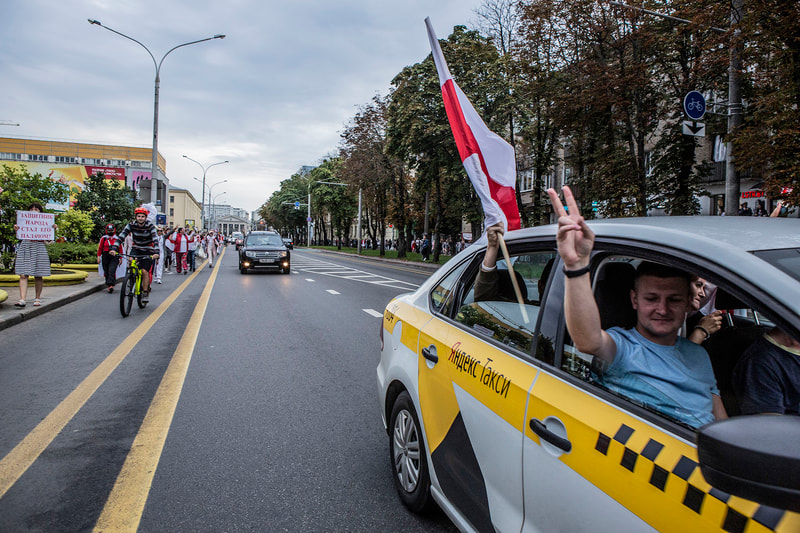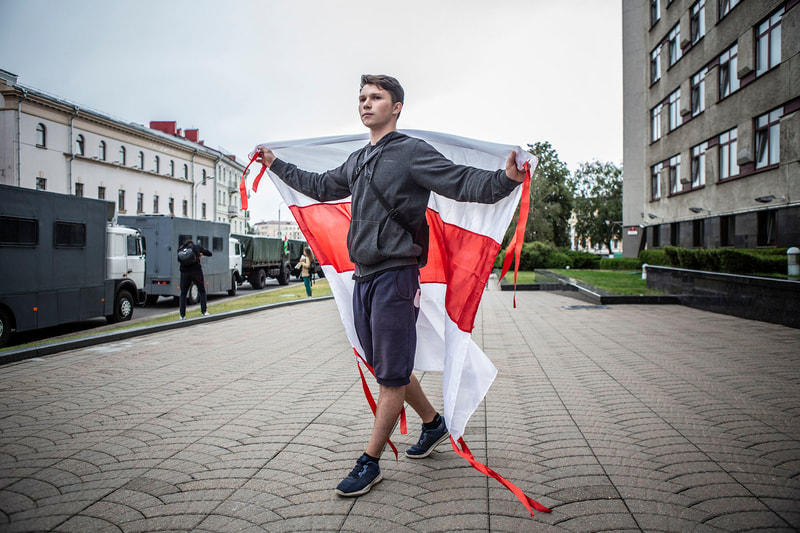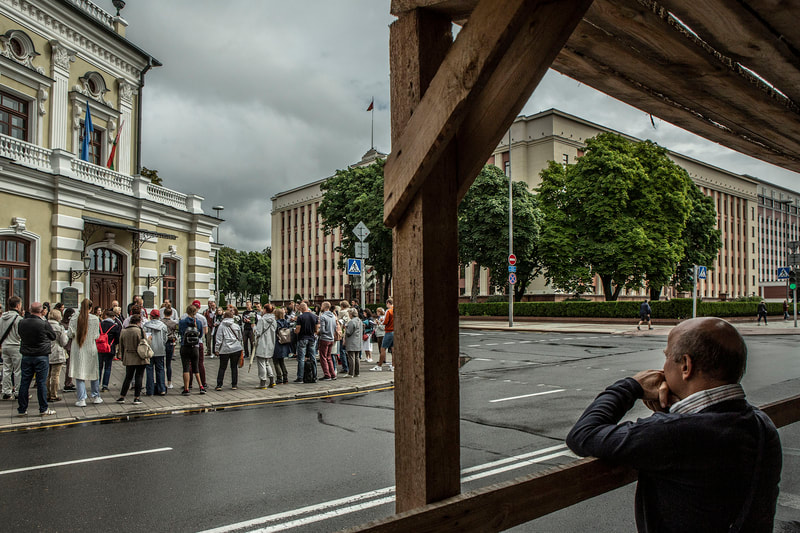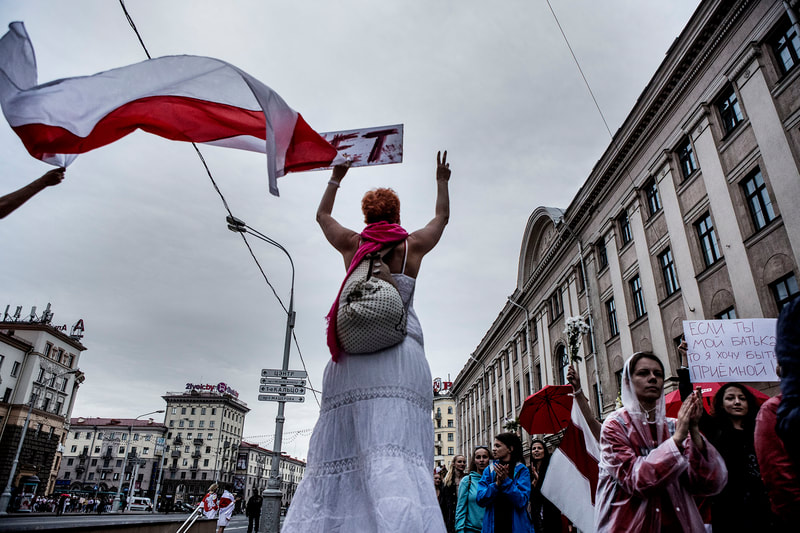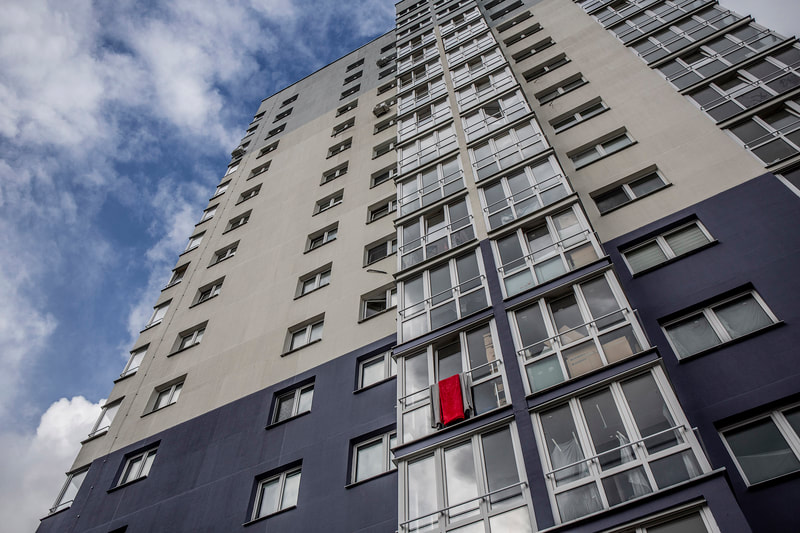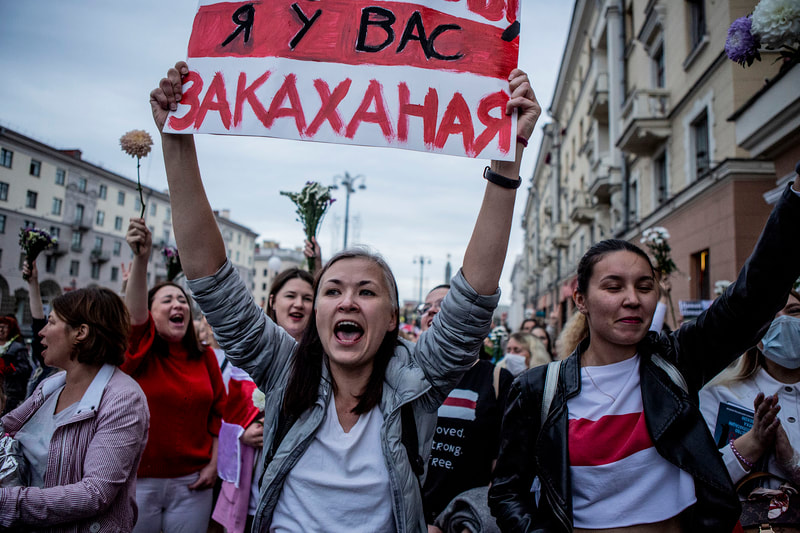The 2020–21 Belarusian protests are a series of ongoing political demonstrations and protests against the Belarusian government and President Alexander Lukashenko. The largest anti-government protests in the history of Belarus, the demonstrations began in the lead-up to and during the 2020 presidential election, in which Lukashenko sought his sixth term in office. In response to the demonstrations, a number of relatively small pro-government rallies were held.
Initially moderate, the protests intensified nationwide after official election results were announced on the night of 10 August, in which Lukashenko was declared the winner. Sviatlana Tsikhanouskaya, the main opponent of Lukashenko, rejected these results as falsified and claimed instead to have received 60–70% of the votes. On 14 August, she announced the creation of the Coordination Council, with membership applications open to all Belarusians who also agreed that the official election had been falsified. On 12 October, the Coordination Council issued Lukashenko an ultimatum to cease all repression, free detainees and step down from the presidency by 25 October. After Lukashenko failed to comply, nationwide strikes began on 26 October.
On 23 September, Belarusian state media announced that Lukashenko had been inaugurated for another five-year term in a brief ceremony which was held privately. The following day, the EU published a statement which rejected the legitimacy of the election, called for new elections, and condemning the repression and violence against the protesters. On 2 October, the EU introduced sanctions against 40 Belarusian officials accused of political repression and vote rigging. Lukashenko himself was not included on the list. The Belarusian government responded by imposing symmetrical sanctions against an undisclosed list of EU officials. Moreover, Lukashenko accused the EU and other "Western organizations" of trying to "harm Belarus" by destabilizing the current regime while supporting the opposition.
The protesters have faced violent persecution by the authorities. A statement by the United Nations Human Rights Office on 1 September cited more than 450 documented cases of torture and ill-treatment of detainees, as well as reports of sexual abuse and rape.
source: wikipedia
Initially moderate, the protests intensified nationwide after official election results were announced on the night of 10 August, in which Lukashenko was declared the winner. Sviatlana Tsikhanouskaya, the main opponent of Lukashenko, rejected these results as falsified and claimed instead to have received 60–70% of the votes. On 14 August, she announced the creation of the Coordination Council, with membership applications open to all Belarusians who also agreed that the official election had been falsified. On 12 October, the Coordination Council issued Lukashenko an ultimatum to cease all repression, free detainees and step down from the presidency by 25 October. After Lukashenko failed to comply, nationwide strikes began on 26 October.
On 23 September, Belarusian state media announced that Lukashenko had been inaugurated for another five-year term in a brief ceremony which was held privately. The following day, the EU published a statement which rejected the legitimacy of the election, called for new elections, and condemning the repression and violence against the protesters. On 2 October, the EU introduced sanctions against 40 Belarusian officials accused of political repression and vote rigging. Lukashenko himself was not included on the list. The Belarusian government responded by imposing symmetrical sanctions against an undisclosed list of EU officials. Moreover, Lukashenko accused the EU and other "Western organizations" of trying to "harm Belarus" by destabilizing the current regime while supporting the opposition.
The protesters have faced violent persecution by the authorities. A statement by the United Nations Human Rights Office on 1 September cited more than 450 documented cases of torture and ill-treatment of detainees, as well as reports of sexual abuse and rape.
source: wikipedia

